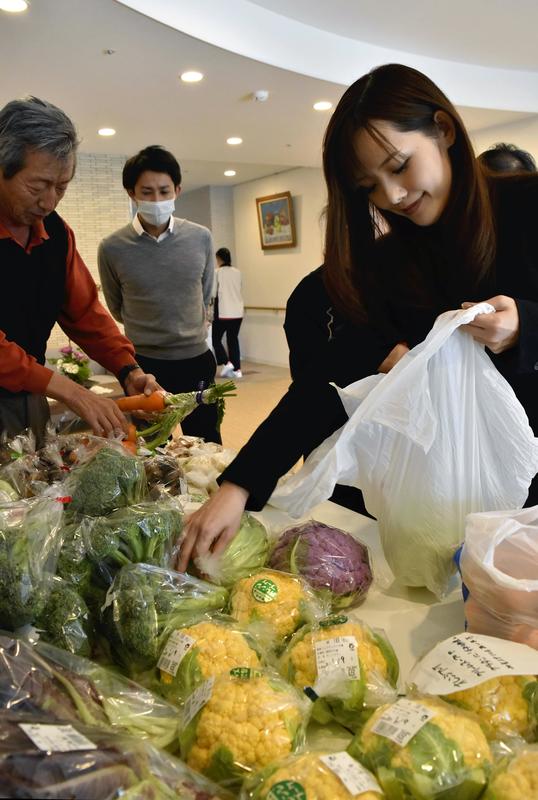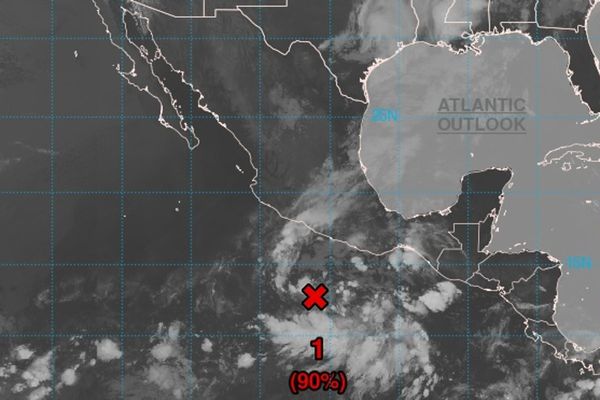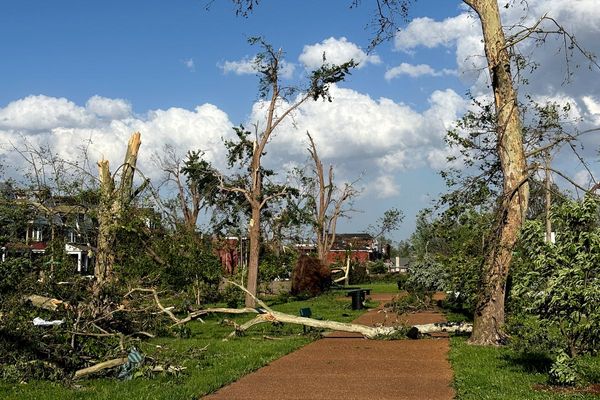
An online business that gives away unsold or unusually shaped vegetables to people who want them, rather than simply discarding such farm produce, is gaining momentum. This system can help reduce food waste, ensure vegetables diligently grown by producers are made good use of and contribute to the local economy.
In mid-January, I visited a farm run by Tomomi Ueno in Kikuchi, Kumamoto Prefecture, where I found a cardboard box filled to the brim with irregularly sized sweet potatoes. Some were small, others seemed bent, but all had been grown without using pesticides.
"I haven't cut off the tips, but perhaps they will be OK?" Ueno, 34, said to Ryuya Sakaguchi, who had come from Kumamoto City to buy vegetables.

"They'll be fine," said Sakaguchi, 32. "Customers will buy them just as they are."
He then bought five boxes containing a total of about 100 kilograms of sweet potatoes for about 20,000 yen.
Sakaguchi runs the furifuru free fruit!! website, which gives away such unusually shaped vegetables and fruit. Sakaguchi uses advertising revenue earned through the website and other funds to buy produce from farmers at their asking price. Registered members of the website are invited to apply for this produce and receive the items if they are chosen through a lottery.
The website currently works closely with at least 50 farms in areas including Kumamoto Prefecture, Hokkaido and the Kanto region. About 60,000 people have registered with furifuru and on occasion the probability of winning certain produce has been 1-in-2,600. Some consumers have even opted to start buying vegetables directly from the growers, with comments made on the website including, "Oddly shaped produce tastes the same as regular ones," and "I wholeheartedly agree with this project."
Ueno also is grateful for the website's support.
"Some people don't mind buying unusually shaped vegetables, but it is hard finding lots of these shoppers," Ueno said. "I'm glad the produce I worked so hard to grow will reach many consumers."
Sakaguchi had the idea for this business in 2011, when he started online sales of vegetables in Kumamoto City. When Sakaguchi visited a farmer he deals with, he was shocked to see perfectly good hakusai celery cabbages being crushed by a tractor in a field. That year had produced a bumper crop and prices had plummeted, so paying for boxes to ship the hakusai would have caused the farmer to run at a loss.
"It was such a waste, after the effort that had gone into growing them," Sakaguchi said.
In 2017, with online advertising rates on the rise, Sakaguchi started the furifuru website. Besides online ad fees, the website is supported by revenue from sponsors in Kumamoto Prefecture and beyond, such as chiropractic clinics, model home exhibition spaces and welfare facilities. Furifuru receives a setup fee from each business, part of which is used for events to sell vegetables cheaply, which reportedly also helps to attract more customers to the sponsors.
About 6.43 million tons of food that could be eaten was thrown away in fiscal 2016, according to the Agriculture, Forestry and Fisheries Ministry. This figure does not include farm produce discarded before being shipped, so the actual volume of food thrown away is higher.
"I want to further develop my business to provide a good link between growers and consumers, so we prevent perfectly edible vegetables from being discarded," Sakaguchi said.
More vegetables for children
Efforts are also expanding to provide unsold and other vegetables free to so-called kodomo shokudo, makeshift cafeterias or eateries that provide free or discounted meals to children.
In December, the Fukuoka City social welfare council and JA agricultural cooperative started a project to supply 16 organizations that run kodomo shokudo with vegetables via local welfare facilities.
At direct sales stores run by JA, growers must take back any produce that has gone unsold for three days. Many kodomo shokudo are operated by volunteers, so finding funds to purchase ingredients can be difficult. These eateries reached out to four welfare facilities in Fukuoka City that have received approval to pick up vegetables once a week from four direct sales stores. On those pickup days, officials from several kodomo shokudo visit the welfare facilities to collect the vegetables. Having welfare facilities involved in this process has the benefit of reducing the burden of dealing with individual stores.
Misato Tagaya, a representative of a kodomo shokudo in Jonan Ward, Fukuoka City, was pleased when she collected some vegetables from Nanokuni, a home for the elderly requiring special care in Nishi Ward.
"This has helped us expand our menu to include dishes such as salads and tempura," she said.
Sachiko Managi, a section chief of the social welfare council, said, "We hope that by using these leftover vegetables, we will be helping to create a place that is comforting for children."
A similar council in Oita Prefecture also is cooperating with entities such as a cooperative of fruit and vegetable wholesalers in Oita City to provide irregularly shaped vegetables to nine kodomo shokudo in the city, while in Kobe, food that has gone unsold at JA direct sales stores is distributed to eight organizations.
Read more from The Japan News at https://japannews.yomiuri.co.jp/







